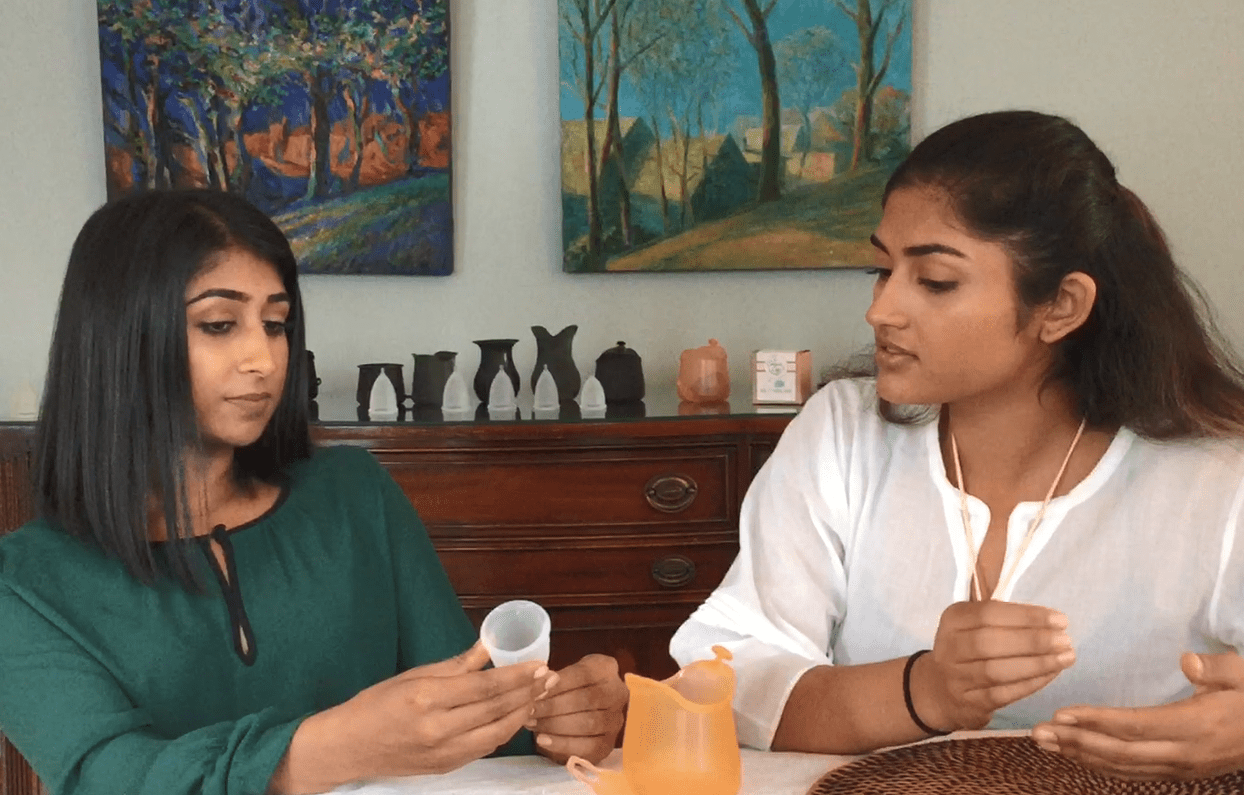About | Apply | Inspiration
Sutopa Dasgupta is part of Sakhi, the team that won the Lakshmi Mittal South Asia Institute’s 2017 Seed For Change competition. Sakhi won $40,000 to develop menstrual cups that are high-quality, affordable, and environmentally safe in India.
In 2018, Sakhi will launch their pilot program with the Sri Likhi Women Welfare Association in Vishakapatnam, Andhra Pradesh. Each program will include a site specific training curriculum. Sakhi custom designed and tested their FDA-approved menstrual cup and sterilization case in collaboration with Casco Bay Molding.
Sutopa is currently a PhD student in South Asian Studies at Harvard University. She spoke to LMSAI about the Seed for Change application process and gave advice to future applicants.
Do you have any tips for students applying to Seed for Change?
When writing your application and preparing your pitch, it is important to think about the big picture. You need to be able to communicate your aspirations for the project, as well as your personal motivations behind it. You need to be able to explain your ideation process and convince the panel that you can successfully achieve your objective.
My recommendation for anyone applying to Seed for Change is to get feedback from as many people as possible, at all stages of the project. Even if someone is not an expert in your field, they may be able to offer you valuable insight. Each time Sakhi received feedback, we streamlined the project pitch. Feedback shapes your priorities and reveals what about your project makes sense and seems possible.
How did feedback change your project?
After the first couple of iterations of my pitch, someone told me that, “You need to tell me why you are personally invested in this project.” Personal narratives that detail your process will be compelling to your panel. For instance, my project came out of my experience as a South Asian woman and the experience of many other women from my community. In my pitch, I connected my personal experience to the real social problem of daily menstrual management in South Asia.
Any final words of wisdom?
Remember that you are not only creating a project, but you are pitching for an investment. To do this, you have to streamline and package your idea. Since this is a seed grant, you have to be able prioritize and organize your resources in such a way that investors are convinced that your project is feasible.
The conversation has been edited for length and clarity.


